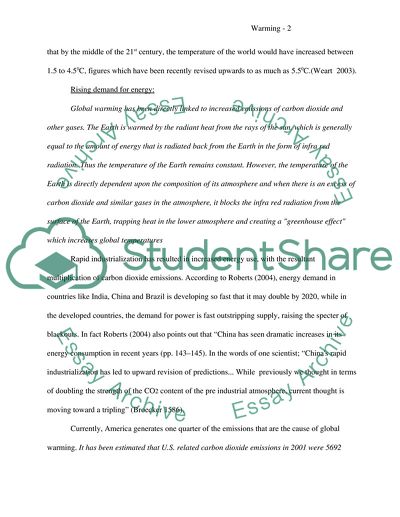Cite this document
(“The Impact Of Global Warming On Developing Countries Essay”, n.d.)
The Impact Of Global Warming On Developing Countries Essay. Retrieved from https://studentshare.org/miscellaneous/1535482-the-impact-of-global-warming-on-developing-countries
The Impact Of Global Warming On Developing Countries Essay. Retrieved from https://studentshare.org/miscellaneous/1535482-the-impact-of-global-warming-on-developing-countries
(The Impact Of Global Warming On Developing Countries Essay)
The Impact Of Global Warming On Developing Countries Essay. https://studentshare.org/miscellaneous/1535482-the-impact-of-global-warming-on-developing-countries.
The Impact Of Global Warming On Developing Countries Essay. https://studentshare.org/miscellaneous/1535482-the-impact-of-global-warming-on-developing-countries.
“The Impact Of Global Warming On Developing Countries Essay”, n.d. https://studentshare.org/miscellaneous/1535482-the-impact-of-global-warming-on-developing-countries.


